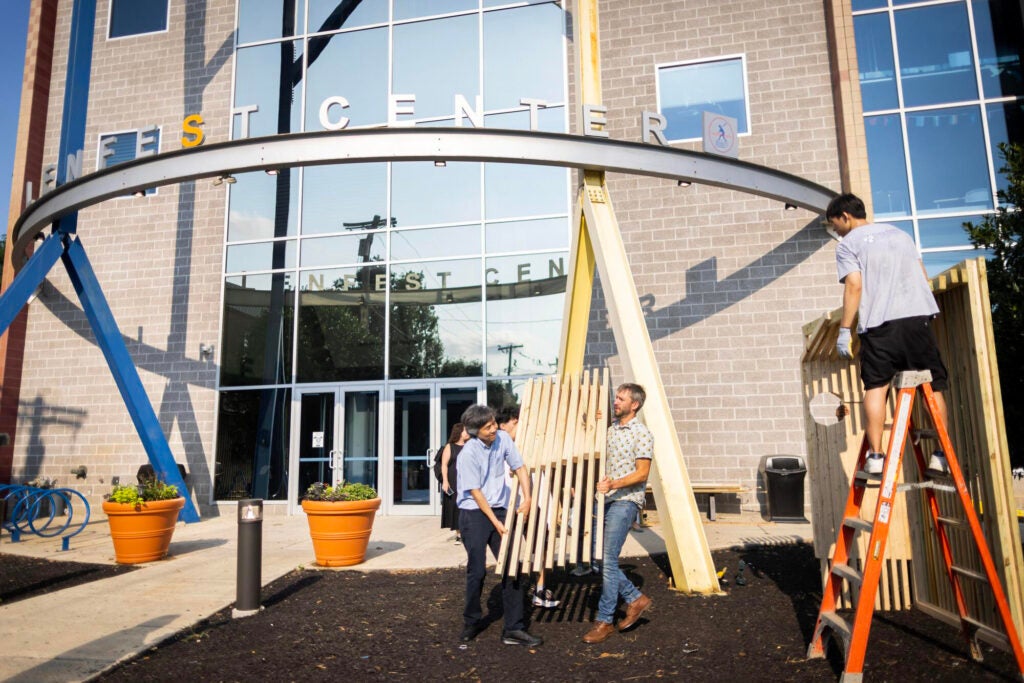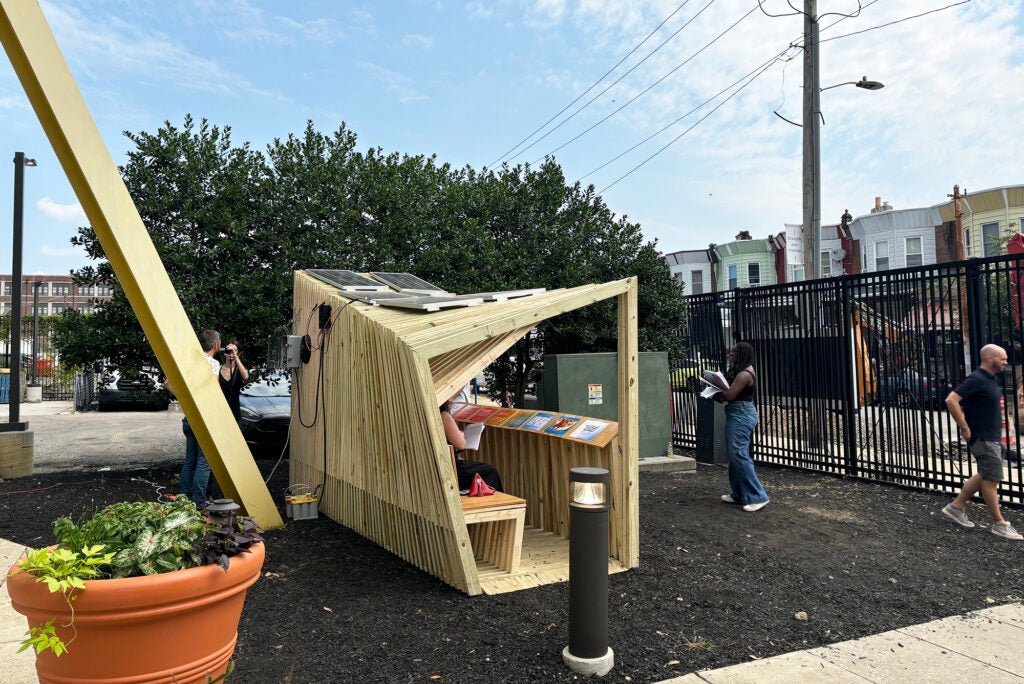In 2024, Philadelphia experienced one of its warmest summers on record, with some neighborhoods, like North Philadelphia’s Hunting Park, reaching temperatures as high as 20° hotter than in other parts of the city.
These areas are known as “heat islands,” and pose significant risk to public health, especially for those living with cardiovascular disease, asthma, and other chronic illnesses.
“Very disadvantaged communities of color are always the ones that have all these inequities, and part of that issue is health inequities,” said Nikki Bagby, chief external affairs officer of the Hunting Park nonprofit North10. “This area has one of the highest asthma rates among youth.”

University of Pennsylvania researchers from the Weitzman School of Design, School of Nursing, and School of Engineering and Applied Science collaborated with North10 to design, build, and test a temporary cooling shelter to be placed at a Hunting Park bus stop. The prototype, made possible through a Penn Community Collaboratory for Co-Creation grant, is called Tenopy, and features a canopied bench with a conductive cooling surface and radiant cooling panels.
“Public health issues are exacerbated by heat,” said Sara Jacoby, an associate professor of nursing. “For example, there are associations between higher heat and firearm crime and violence.”
“My hope is that this project will be another opportunity, even if it’s just as simple as sitting in a cool space, to make sure that someone is feeling safe and they’re feeling better,” added Bagby. “When you feel better, your health is better.”

Hunting Park residents have been instrumental in providing feedback, ensuring that the design of the cooling shelter aligns with the needs and preferences of the people it is intended to serve.
“We learned a lot from the community collaboration,” said Dorit Aviv, assistant professor of architecture and director of the Thermal Architecture Lab in Weitzman. “We hope that if the pilot is successful, we can work together toward long-lasting solutions.”
Read more at Penn Today.